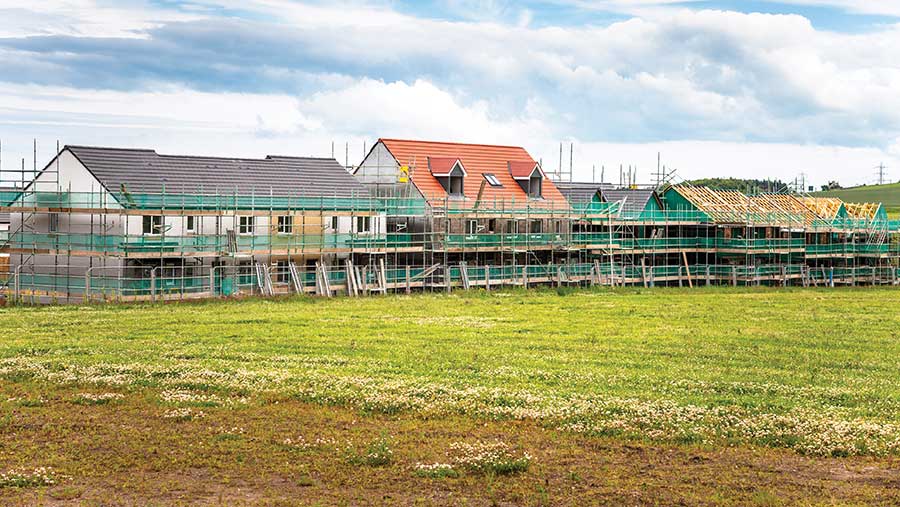Business Clinic: How will I be taxed on plot sales cash?
 © iStockphoto.com/AAlberPego
© iStockphoto.com/AAlberPego Whether it’s a legal, tax, insurance, management or land issue, Farmers Weekly’s Business Clinic experts can help.
Carly Drummond, senior tax manager at MHA, advises on the tax implications of an offer from a developer which means the landowner will share in the plot sales proceeds.
See also: Business Clinic: What to do about HMRC basis year reforms
Q I have been approached by a residential developer who wants to take an option over 6ha of my land that has road frontage. I have always thought this would have some development potential and am keen to pursue this. I don’t want to fund planning and the developer is happy to do so, but rather than buy the land from me, he wishes to give me a percentage of plot sale values as he develops the site. How will I be taxed? Will this be treated as a capital disposal of the land?
A Generally, when selling land for development, this will be taxed at the capital gains tax rates of 10% or 20%, leaving a good proportion of net proceeds for the landowner to enjoy.
Of course, they could also look to rollover this gain where that is applicable.
However, there will be instances where the sale of land will be taxed as income, for either the individual landowner or the company owner of the land.
This will occur where the business of the landowner is involved in the trade of developing land or property.
As the rate of corporation tax is the same whether taxing income or a gain, this doesn’t tend to be a concern unless there is a wider plan in place. For individuals, however, the rates of tax vary greatly.
Presuming your ownership of the land has been for many years comprised in agricultural activities and the land was not purchased with the intention of undertaking such a development, then a straight sale should be taxed as capital.
Anti-avoidance measures
However, in your case, you would not be selling bare land for a lump sum of cash, you would be selling in exchange for a “slice of the action”.
We therefore need to consider the anti-avoidance provision of the Income Tax Act 2007, ss.517A-517U Transactions in UK Land.
It would seem that, at the date you contract with the developer to allow him to develop your site in exchange for a share of the profits, your intention for the land changes and you become involved with the developer in the overall proposal of exploiting the land for profit.
Where a straight sale would see the landowner walk away before the point of development, you will continue to hold an interest throughout this period.
The Transaction in UK Land provision would therefore likely look to tax you on your deemed proceeds (the value of the properties from which you are benefiting) and tax this at the income tax rates of 20%, 40% or 45%.
Depending on values it seems extremely likely that the 45% rate would apply for the majority of this amount.
There is a concession which would exempt the “gain” attributable to the period before your intention changed from the income tax charge, but this would very likely be a small proportion of the overall value received.
This anti-avoidance provision can also catch the disposal of assets which derive at least 50% of their value from UK land (for example, shares in a company which holds land).
When considering a land sale, or a transaction of the type proposed by the developer who has approached you, it’s crucial to get your advisers involved early, not only to make sure the anti-avoidance rules don’t bite, but also to ensure that any available reliefs, such as rollover or business asset disposal relief, can be maximised.
Do you have a question for the panel?
Outline your legal, tax, finance, insurance or farm management question in no more than 350 words and Farmers Weekly will put it to a member of the panel. Please give as much information as possible.
Email your question to FW-Businessclinic@markallengroup.com using the subject line “Business Clinic”.
